If you’ve been to the movies in the past decade, chances are you’ve noticed a recent increase in superhero blockbusters. Once computer-generated effects became more inexpensive and commonplace in the film industry, stories that were originally considered impossible to tell (such as epic fantasies like The Lord of the Rings) could now be portrayed in all their glory. As a result, legendary figures like Spiderman and Batman started to take center-stage in the cinematic world. And viewers, even if they were newcomers to the world of superhero culture, began to notice that there was an unspoken competition between the two main comic-book franchises: DC and Marvel.
Of the two organizations, DC’s characters were probably the more well-known to begin with, because DC’s lead protagonist was Superman — probably the very first superhero ever created (though points can be made that Edgar Rice Burroughs first invented the ’superhero’ concept with his book series The Princess of Mars in 1917). However, in recent years, the underdog franchise that is Marvel has built itself into a major competitor for DC, and could arguably be considered the century’s major producer of superhero films (though opinions will vary on that topic, depending on who you ask).
I could probably write an entire article just on how and why Marvel managed to come out from DC's shadow accomplish so much…
…but instead I’m going to focus on a spoiler-free explanation of one of their more recent and lucrative achievements that began in 2013. I am, of course, referring to ABC’s hit Tuesday-night action drama, Marvel’s Agents of Shield.
Hogwarts S.H.I.E.L.D, A History
As I mentioned earlier, superhero movies became all the rage at the turn of the century. However, something changed between June of 2003 and May of 2008. The Hulk, a decent action flick by Marvel, featured a post-credits scene with a man called Stark. Moviegoers who knew nothing of the Marvel franchise still noticed something fishy going on when that happened, because many audience-members who did collect comic books let out surprised and delighted screams. Soon the internet with abuzz with explanations for superhero greenhorns: Stark, also known as Tony Stark, was (or would soon be) a superhero himself. And as icing on the cake, in that post-credits scene he mentioned a team of talented individuals that was being put together… meaning that, if all went well, the Marvel movies would begin connecting with one another, and more and more characters would be appearing on the silver screen.
Well sure enough, all did go well. Iron Man, the movie featuring Tony Stark’s lesser-known superhero (lesser-known to non-comic-book-readers, remember) became a smash-hit. Certainly it delighted audiences with its genuine, flawed protagonist and its humor-laced, high-speed adventure. But more than that, it featured a cameo by a mysterious man named Nicholas Fury, who hinted at the existence of a secret organization that functioned beyond the fringes of the film: the Strategic Homeland Intervention, Enforcement, and Logistics Division.
The first person to tell us the shortened name, S.H.I.E.L.D, is a minor character and secret agent named Phil Coulson.
As Marvel’s notoriety grew and their film count increased, S.H.I.E.L.D. continuously lurked and grew in the background as a common thread that linked the films together, if only barely. Phil Coulson, who wasn’t based on any comic book character and had been created purely for the movies, ended up making repeated cameos in Nick Fury’s absence. Then, in July of 2011, Marvel released a different kind of post-credits scene after Captain America: The First Avenger. In fact, it wasn’t a scene at all: it was a trailer for The Avengers: a movie that promised to bring together an entire team of superheros onto one screen.
That goal was unheard of, appeared to be impossible, and could (again) merit an entire article all its own. But, in short (and as you probably know), The Avengers made box-office history in 2012 (and over two-hundred million dollars just on its opening weekend). Thanks to Marvel’s careful storytelling strategy and director Joss Whedon’ intricate skill with humor and human characters, Marvel cemented itself as the film industry’s lead producer of superhero blockbusters. The movie featured a mix of not just superhuman characters, but also normal people and S.H.I.E.L.D. agents — including Phil Coulson, whose sacrificial acts ended up uniting the Avengers in the end.
After that, movie and comic book fans alike found themselves drawn to Coulson and his down-to-earth, normal-human-being personality more than ever before. And as if they anticipated just that, in 2013 Marvel decided to do something virtually unheard of: with Whedon still at the helm, they produced a television series centered around human characters in the Marvel universe: Agents of S.H.I.E.L.D.
Now admittedly, the idea for a comic-book-based television show wasn’t entirely original to Marvel. On the other side of the superhero business, DC had been airing the show Arrow for roughly a year. It was well-received by audiences, as it gave their character Green Arrow countless hours of introduction and adventure instead of a single movie. However, though more shows were on their way and Arrow had a few vague references to other DC cities or heroes, the series was still largely self-reliant. Marvel had already succeeded in establishing their own interconnected web of heroes, and Agents was meant to be yet another link between past, present, and future Marvel films.
The show aired on ABC beginning in 2013, and it starred both Coulson and his peers as they genuinely struggled to do the right thing in a world of increasingly-supernatural obstacles.
It’s kept over three million viewers glued to their television screens every Tuesday night for two years and two seasons, and that doesn’t show any signs of stopping.
The Plot
Though Nick Fury, the head of S.H.I.E.L.D, and other characters make some occasional cameos, this show has featured a team of almost entirely-new characters with Phil Coulson at the helm.
The central group includes agents like the solemn and stoic Melinda May (played by Ming-Na Wen, voice of Mulan!)…
Grumpy and deadly Grant Ward…
…and the dynamic science duo, “Fitzsimmons”…
…which consists of the adorable Scottish tech-genius Leo Fitz…
…and his best friend, British biochemist Gemma Simmons (who references all sorts of fantastic British productions like Harry Potter and Doctor Who).
After the events of The Avengers, the world has grown a little stranger than usual. Coulson and his team must deal with an increasing number of encounters with strange or even supernatural occurrences…
…and some of them just need a little practice with the whole "team" concept in general.
But the further they go to investigate alien technologies, the more unsettling secrets they begin to unearth within their own team. And as if things weren’t complicated enough, they find themselves half-imprisoning, half-working-with a teenage hacker named Skye who has been trying to procure secure information about her missing parents from S.H.I.E.L.D. for years.
The Appeal
There are a lot of reasons why fans can’t tear themselves away from Agents of S.H.I.E.L.D, and everyone you ask may give a different one as their favorite. There's the show's intrepid humor, of course.
Also, it’s nice for us non-superhuman viewers to watch a show about people that are sometimes just as mundane as we are.
Phil Coulson has captured the hearts of audiences even more since Agents started, and he is now the first-ever Marvel character to have originated in the movies and then become a comic book character. That’s right: Coulson not only has his own show, but now he’s in the comics as well.
 |
| So, if I also know how Quicksilver could kill the Hulk, does that make me Coulson!? |
Additionally, thanks to Joss Whedon’s overseeing of the project, Agents features genuinely-human and hilariously-witty growing characters (as well as occasional fantastic references to his shows like Firefly and Dollhouse).
Despite an initially-slow first season, the show has kept more and more viewers on the edge of their seats because (again, thanks to Whedon) there is simply no guarantee that our characters will make it out of danger alive or unscathed. Betrayal, trauma, and life-threatening injuries have laced not just the show but also the very team itself. Whedon has introduced some fantastic shipping names* like Fitzsimmons, Skyward, and HuntingBird on a silver platter. (This, of course, gets the hopes of the audience up so that he can properly tear their hearts to pieces many, many times.)
* ‘Shipping’ is a fan’s verbal or mental desire for two characters to begin a romantic relationship. ‘Shipping Names’ (often just shortened to ‘Ships,’) generally involve combining the names of the two characters somehow. As just mentioned, Skye and Ward have often been shipped by fans under the name of “Skyward.”
However, I think the greatest factor in the success of Agents is the fact that the show more or less functions in real time with the events of the Marvel films. It’s a genius, lucrative production because the show’s viewers practically have to see every Marvel film on its release weekend, or risk being partially lost in the next episode.
Marvel made their movies so that you don’t have to watch the show to understand what’s going on, but the two storylines are often more intricately-linked than non-television-fans might suspect. This connection was particularly evident in the release of Captain America: The Winter Soldier, where the collapse of S.H.I.E.L.D. itself rattled the foundations of the show.
Fans who are intimidated by the world of comic books have been able to fulfill their cravings for Marvel storylines by watching Agents of S.H.I.E.L.D, and it enhances the experience of attending any Marvel movie… especially because the show has been laying down more and more track for future films and future superheroes, and even readers of the comic books still get blindsided on rare occasions by a few of the exciting cameos and big reveals.
The Rating
The show is a solid PG-13, staying true to Marvel’s style in their movies as being grim, but not necessarily gritty.
Violence: There is plenty of physical combat (these are secret agents, after all) and danger from unknown, alien technologies. Characters are put through a boatload of injuries, from broken bones and bullet-wounds to suffocation, torture, and brainwashing. Audiences are very likely to cringe at what is happening, but they may be told more than is actually shown. Especially-graphic injuries are often obscured by clothing or blood, and torturous deeds tend to be edged just slightly offscreen. This show may not be appropriate for kids, but anyone who’s seen films like Batman Begins will be more than safe here.
Sex: We eventually see a few couples in bed together, or on their way to it. Sex isn’t really a major part of the show’s genre, but those scattered relationships do tend to tie into the plot as time goes on, and there are occasional innuendos of varying unpleasantness.
The slightly-frustrating part is that these hook-ups generally aren’t portrayed as healthy or positive; the characters that sleep together aren’t always emotionally-invested in one another, but might just be using each other for a physical release. Fortunately, there have been a few hints of tension that show sexual relationships can’t be brushed over so easily, so we shall see how the show develops that factor in the long run.
Language: Television shows have a slightly more stringent code than movies thanks to the threat of channel-surfing children, so aside from a few mild PG-13 curses, Agents is refreshingly clean.
The Genre
If you’ve ever seen a Marvel movie, you’ve probably got a better concept of genre than any explanation could give you. Agents of S.H.I.E.L.D. is an action-adventure thriller, laced with the good laughs and science-fiction touch that comes when you add aliens and superheroes to the mix.
So is it worth it?
The Decision
That depends on you. There are two seasons already done and a third one is about to start in the Autumn, so if you want to catch up then you’d better start now; summer is the perfect time to binge-watch online, or perhaps marathon the show with your friends.
While you can understand the Marvel movies without seeing Agents, you may not be able to say the same in reverse. And unfortunately, there’s also no way to understand Agents unless you start it from the very beginning with Episode One of Season One. Besides Coulson, the characters are all entirely new to Marvel and haven’t made a single cameo in the movies since the show got started. Not to mention that they’ve all come a long way since they first met.
Fan-Made Trailers
And if you’re still on the fence, don’t wait too long to make your decision; the show’s popularity and episode-count are escalating. There are plenty of fan-made trailers on Youtube that might interest you if you’re more of a visual person (like myself), but sometimes the original trailer from the beginning of the series is the best choice.
Conclusion
In the end, if you really enjoy Marvel’s movies but are too apprehensive to dip your toe in the raging sea of their comic books, I’d recommend you tide yourself over with this television show. It may have gotten off to a slow start, but it has turned into one heck of a roller coaster ride, and it shows no signs of stopping anytime soon. This show has captured (and ripped out) the hearts of its viewers because, above all else, Agents of S.H.I.E.L.D. focuses on the lives and efforts of ordinary people like you and me… and then it shows just how those same people can become extraordinary in the end.



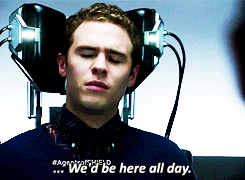


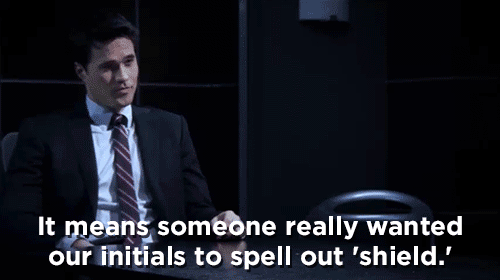
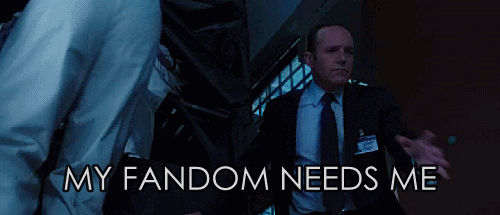
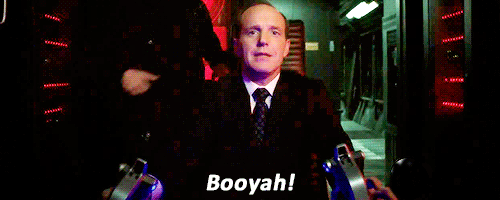



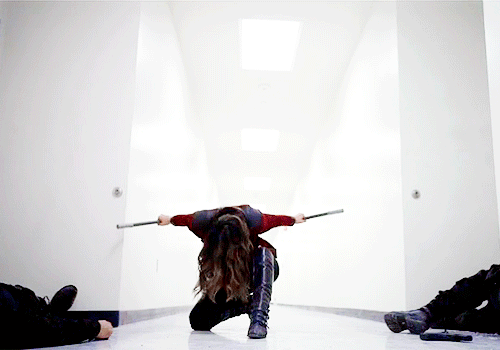



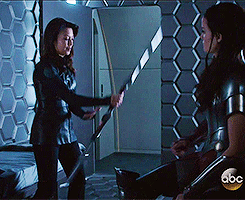

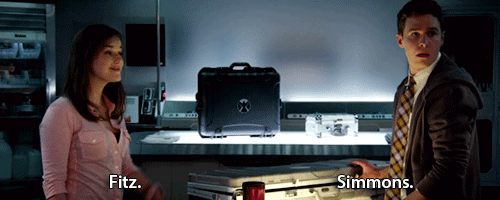
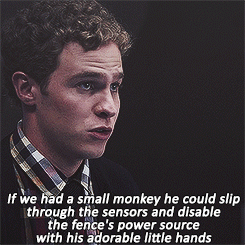

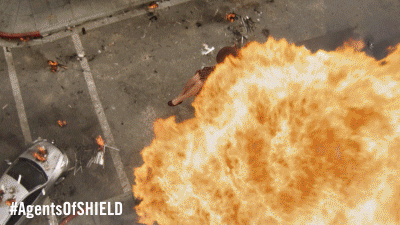
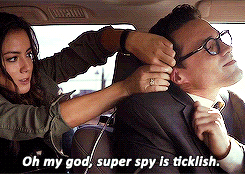
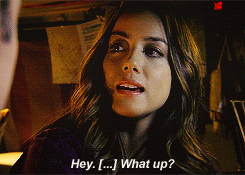
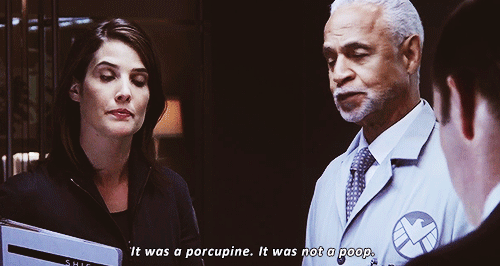


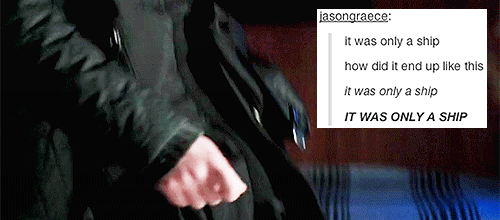

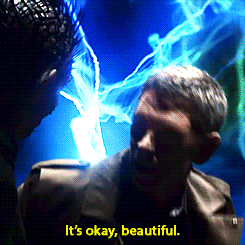
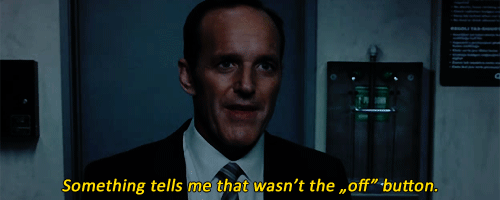




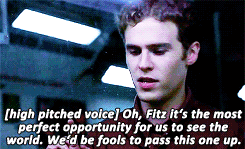
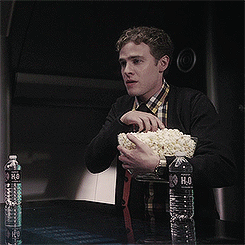
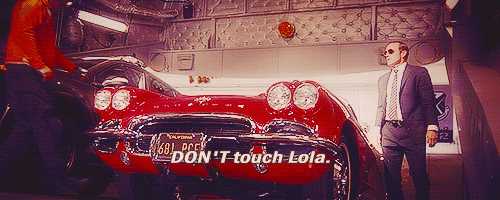

0 comments:
Post a Comment